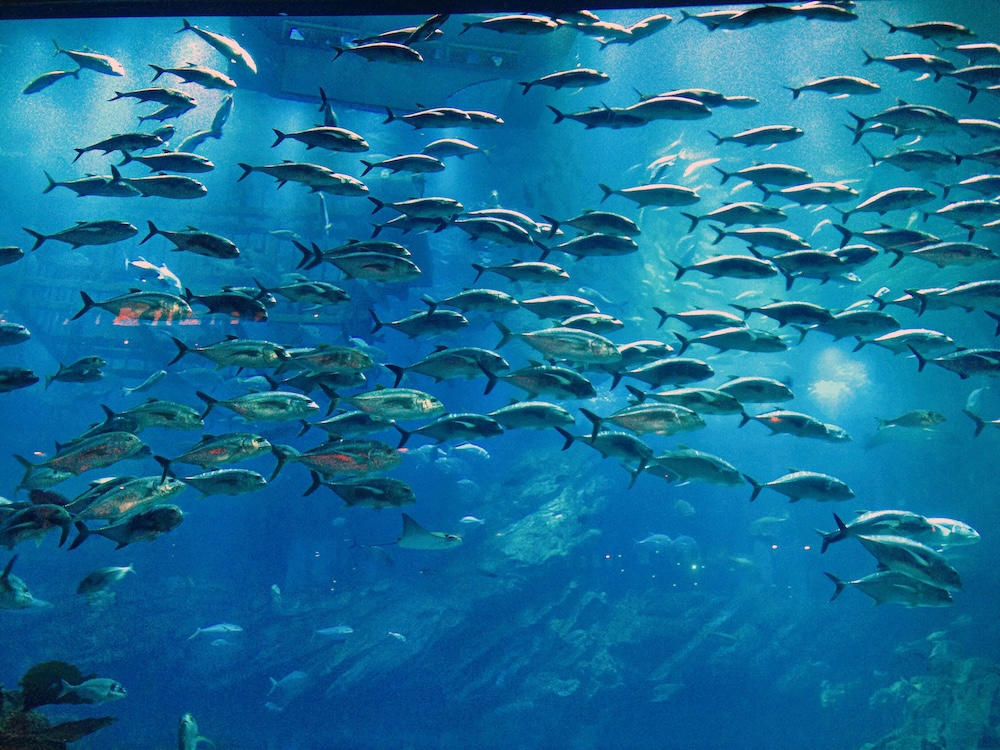The Short Answer
Yes, fish do drink water — but how they drink it depends on whether they live in saltwater or freshwater environments. The process is intricately tied to their survival, physiology, and the ecosystems they inhabit.
Understanding how fish interact with water not only answers a fun science question but also opens the door to bigger discussions about aquatic ecosystems, pollution, and sustainable water stewardship.
Saltwater vs. Freshwater Fish: Key Differences
Saltwater Fish
- Environment: Surrounding seawater contains more salt than their internal body fluids
- Problem: Constant risk of dehydration due to osmosis (water flows out of their bodies)
- Solution: They actively drink seawater to stay hydrated and excrete excess salt through their gills and urine
Freshwater Fish
- Environment: Surrounding water has less salt than their internal fluids
- Problem: Risk of absorbing too much water through osmosis
- Solution: They rarely drink water, instead absorbing it through their skin and gills, and excreting the excess via very dilute urine
Osmoregulation: The Science Behind It
Fish maintain internal balance through osmoregulation, a biological process that controls:
- Water intake
- Salt levels
- Waste removal
This process is crucial for survival and varies based on habitat. The balance is delicate — and one reason fish are sensitive to changes in water quality.
Why This Matters for the Environment
1. Pollution Disrupts Osmoregulation
Toxins, heavy metals, and microplastics interfere with a fish’s ability to maintain salt-water balance, leading to stress or death.
2. Climate Change Alters Salinity
As sea levels rise and freshwater sources are strained, salinity levels in estuaries and rivers fluctuate, making life difficult for species adapted to narrow conditions.
3. Water Quality Affects Ecosystems
Contaminated water bodies affect not just fish but entire food chains — including humans who rely on those fish.
How to Support Aquatic Ecosystems
Reduce Household Water Pollution
- Avoid pouring chemicals, medications, or oils down the drain
- Choose biodegradable soaps and detergents
Use Eco-Friendly Lawn and Garden Products
- Fertilizer runoff contributes to algae blooms and oxygen-depleted “dead zones” in aquatic systems
Support Sustainable Fisheries
- Look for certifications like MSC (Marine Stewardship Council)
- Eat local, seasonal, low-impact seafood when possible
Conserve Water
- Excessive water use can deplete rivers and groundwater that support aquatic habitats
Common Questions
- Do fish get thirsty?
Not in the way humans do. Their bodies signal when water balance is off, but they don’t experience thirst as a conscious feeling. - Can fish survive in any water?
No — each species has a specific range of salinity, temperature, and oxygen levels it can tolerate. - Why can’t freshwater fish live in saltwater?
Their osmoregulatory systems can’t handle the higher salinity — they would dehydrate. - Do all saltwater fish drink water?
Yes — actively. Their bodies lose water to the salty environment and need to replenish. - How do fish urinate?
Through a urinary pore near their anal fin. Freshwater fish produce a lot of diluted urine; saltwater fish produce less but highly concentrated urine. - Can changes in water salinity kill fish?
Yes — even small changes can cause osmotic shock, especially in species not adapted to variable environments.
Final Thoughts: What Fish Teach Us About Water
Fish don’t just live in water — they interact with it in complex, finely balanced ways that are directly affected by human activity. By understanding how fish hydrate and regulate fluids, we gain a deeper appreciation for aquatic life and a powerful reminder of the importance of clean, stable water ecosystems.
Whether it’s reducing pollution, conserving water, or protecting marine habitats, supporting the well-being of fish also supports the health of our shared planet.









Reader Interactions